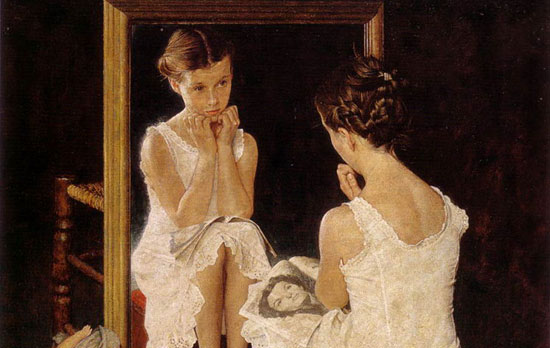Podcast: Play in new window | Download | Embed

(Okay. After a minor interruption in podcast service I think we’re up and running again.)
How Your Self Perception Was Shaped
“No child can ‘see’ himself directly. He only sees himself from the reflections of others.”
This episode of the Self Esteem series we look at how your self image has been shaped by your early childhood, parents, and experiences that everyone goes through.
The Triune Brain
Early in this episode we discuss how the brain is thought to work and the three different parts of the brain:
- Reptilian Brain—Controls fight, flight, or freeze response, hunger, sex, sleep
- Limbic Brain—Feelings, emotions, relationship bonding
- Neo-Cortex—Thinking, rational, advanced planning, and understand of time
Things That Were Covered
- 93% of communication is nonverbal.
- First 6 months of development is growing the limbic brain.
- “Loving your kids is not enough. Doing the things so the CHILD FEELS loved (limbic brain) is the most essential.”
- Attitudes and actions are the MOST influential, not the words.
- Parents are all-knowing and god like.
- “These all-powerful gods treat me as I deserve to be treated. What they say about me IS what I am.”
- Society shapes kids and naturally gifted kids tend to get chosen and sought out.
- Mixed messages and the idea that kids always listen to the nonverbal over the verbal message.
- Being honest with children and living a congruent life.
- Temper openness with appropriateness.
- Love is a genuine encounter with psychological safety.
- “Children are programmed for inner presence. Without it, time together is wasted or even harmful. Yet, how frequently we give presents rather than presence.”
- It’s when we put actions into a context that we place values of good or bad on it.
What I Wish I Had Know Before I Had Kids (That I Know Now)
Dawn Hallman—Dallas Association for Parent Education, dallasparents.org
I wish I had know that my children’s behavior was a language—that their actions and words were telling me something about what they were feeling and thinking. I wish I’d remembered that they did not get up in the morning plotting to do things to frustrate me.
I wish I’d known that meltdowns and explosions usually meant my kids were tired, or hungry, or bored or frustrated themselves. I wish I’d known that they needed an adult to help them find the words to express what was troubling them. But they sure didn’t need a frustrated adult.
I wish I’d known more about child development, brain development and behavior. I wish I’d known that growing up is a slow process. I wish I’d known how each development stage has its own way of seeing the world. I wish I’d known that most times they saw things very differently from me.
I wish I’d listened more to what was true about their hearts and spirits and personalities than worrying about what other people thought about their behavior.”
